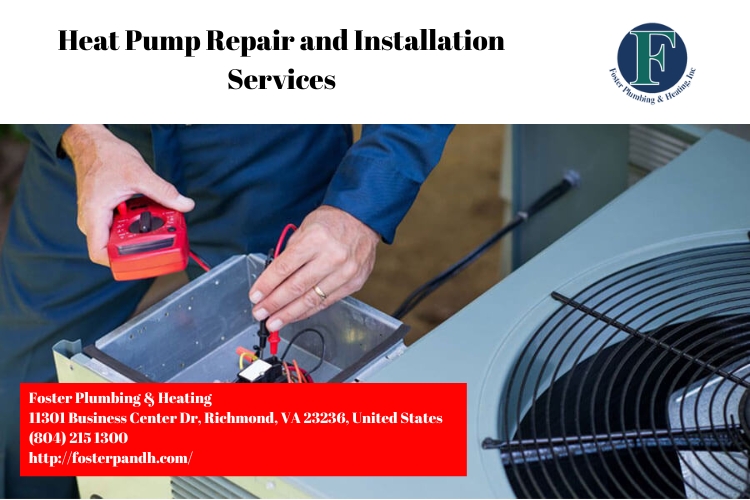In today’s world, having a reliable power source is more essential than ever. Power outages can disrupt daily life, affect productivity, and even pose safety risks. That’s where generators come into play. Whether you're looking for backup power during storms or ensuring your home stays functional during an outage, understanding how to prepare your home for generator installation is crucial. In this comprehensive guide, we'll cover everything from choosing the right generator to the final installation process.
Understanding Generator Types and Their Benefits
What Is a Standby Generator?
A standby generator is a permanent solution that automatically turns on when your utility power goes out. Unlike portable generators, which require manual setup and refueling, standby generators are connected directly to your home's electrical system and run on natural gas or propane.
Benefits of Standby Generators
Automatic Operation: As soon as the power goes out, the standby generator kicks in. Convenience: No need for manual setup or refueling. Safety: They provide consistent power without the risk of running extension cords through wet conditions. Long-term investment: Standby generators are designed for longevity and reliability.Assessing Your Power Needs for Generator Installation
How Much Power Do You Need?
Before installing a generator, assess your household's power requirements:
- List essential appliances (refrigerator, HVAC systems, lights). Calculate wattage needed using a simple formula: Amperes x Voltage = Watts.
Example Calculation
| Appliance | Amps | Voltage | Watts | |-------------------|------|---------|-------------| | Refrigerator | 6 | 120 | 720 | | HVAC System | 15 | 240 | 3600 | | Lights Foster Plumbing & Heating (10 bulbs) | 1 | 120 | 1200 |
Total Wattage Needed = 720 + 3600 + 1200 = 5520 Watts.
Choosing the Right Location for Your Generator
Outdoor Installation Considerations
When preparing your home for generator installation, location matters significantly:
- Ensure it’s at least 5 feet away from doors and windows. Choose a flat surface; avoid areas prone to flooding. Keep it accessible for maintenance.
Permitting and Regulations Related to Generator Installation
Understanding Local Codes and Regulations
Before installing your generator:
Check local building codes. Obtain necessary permits. Ensure compliance with zoning laws.Preparing Your Home’s Electrical System
Evaluating Existing Electrical Infrastructure
Before proceeding with installation:

- Inspect your electrical panel; it should be able to handle additional load. Upgrade if necessary—consult an electrician if unsure.
Wiring Requirements for Generators
Your electrician will need to install a transfer switch to connect the standby generator safely to your home’s wiring system.
Fuel Source Considerations for Generators
Natural Gas vs. Propane: Which Is Better?
Both fuel sources have pros and cons:
- Natural gas is typically more convenient and economical but may not be available in all areas. Propane has storage considerations but offers flexibility in terms of availability.
Selecting an Installer: Why Experience Matters
Choosing Qualified Professionals for Generator Installation
Look for licensed contractors with experience in generator installations:
Verify credentials. Read reviews or ask friends/family for recommendations. Get multiple quotes.Importance of HVAC Services Near Me in Generator Installation
An experienced HVAC technician can ensure that your heating and cooling systems are adequately supported by the new generator.
How to Prepare Your Home for Generator Installation: A Step-by-Step Guide
Following these steps will ensure a smooth installation process:
Assess power needs thoroughly. Choose the right type of generator based on those needs. Evaluate potential locations around your property while considering safety regulations. Prepare your electrical panel by consulting with an electrician about any required upgrades or modifications. Choose between natural gas or propane based on availability and convenience in your area. Hire qualified professionals who specialize in generator installations to do the work efficiently and safely.
By following this guide carefully, you’ll set yourself up for success when preparing your home for generator installation.

Maintenance Plans Post-Installation: Why They Matter?
Once installed, consistent maintenance ensures efficiency:
Schedule regular inspections—consider services like standby generator maintenance near me. Check fuel levels regularly if using propane. Run monthly tests of the system under load conditions.Common Questions About Generator Installation
FAQ Section
Q1: How long does it take to install a standby generator?
It typically takes around one day once all preparations are complete, including permitting time which can vary by location.
Q2: Can I install a standby generator myself?
While it’s possible, it's highly recommended that you hire professionals due to safety concerns related to electrical connections and local regulations.
Q3: What type of maintenance does a standby generator require?
Regular checks include oil changes, filter replacements, battery maintenance, and running monthly tests under load conditions.
" width="560" height="315" frameborder="0" allowfullscreen>
Q4: How noisy are standby generators?
Most modern units operate at around 50-60 decibels – comparable to normal conversation levels – making them relatively quiet during operation.
Q5: What happens during a power outage?
The standby generator will automatically detect the loss of utility power within seconds and begin powering essential circuits after starting up safely.
Q6: Are there any tax incentives available for installing energy-efficient generators?
Yes! Depending on where you live; some local governments offer rebates or tax credits aimed at improving energy efficiency with renewable resources like solar or certain types of generators.
Conclusion
Preparing your home for generator installation requires thorough planning and consideration from assessing power needs to ensuring compliance with local regulations and selecting qualified professionals like Foster Plumbing & Heating. This step-by-step guide aims not only to inform but also empower homeowners like you with knowledge about what it takes to invest wisely into backup power solutions effectively because we know how important reliable electricity is in today’s world!
Contact Us
Foster Plumbing & Heating
Address: 11301 Business Center Dr, Richmond, VA 23236, United States
Phone: (804) 215-1300
" width="560" height="315" frameborder="0" allowfullscreen>
By following this guide closely while preparing your home for generator installation, you’ll ensure you’re ready when disaster strikes! Don't forget—your comfort starts with proper planning!
" width="560" height="315" frameborder="0" allowfullscreen>